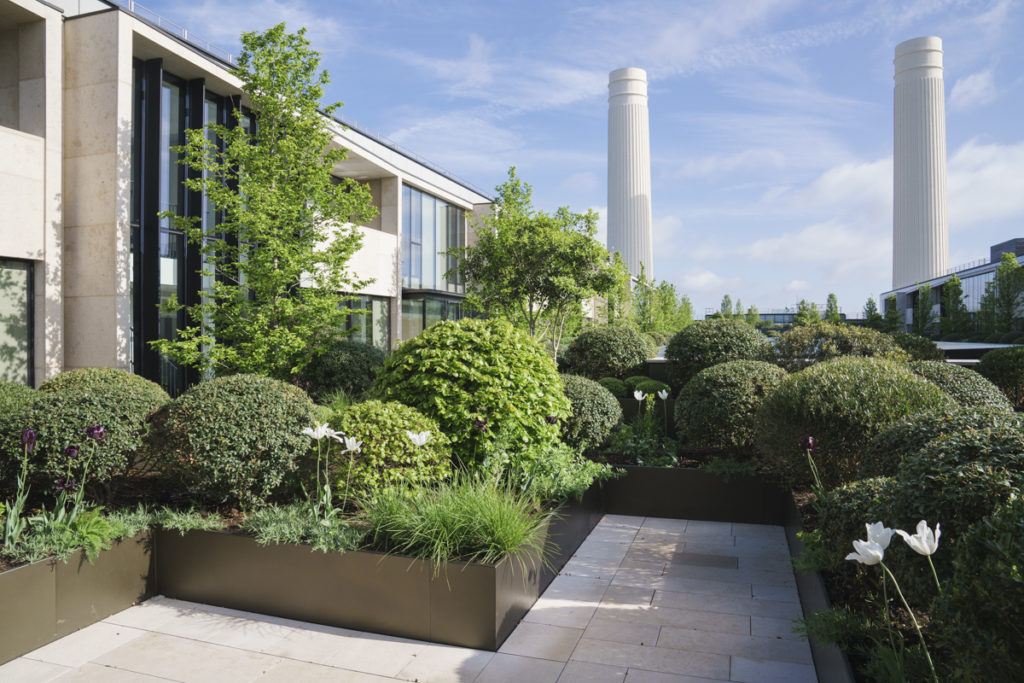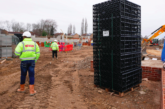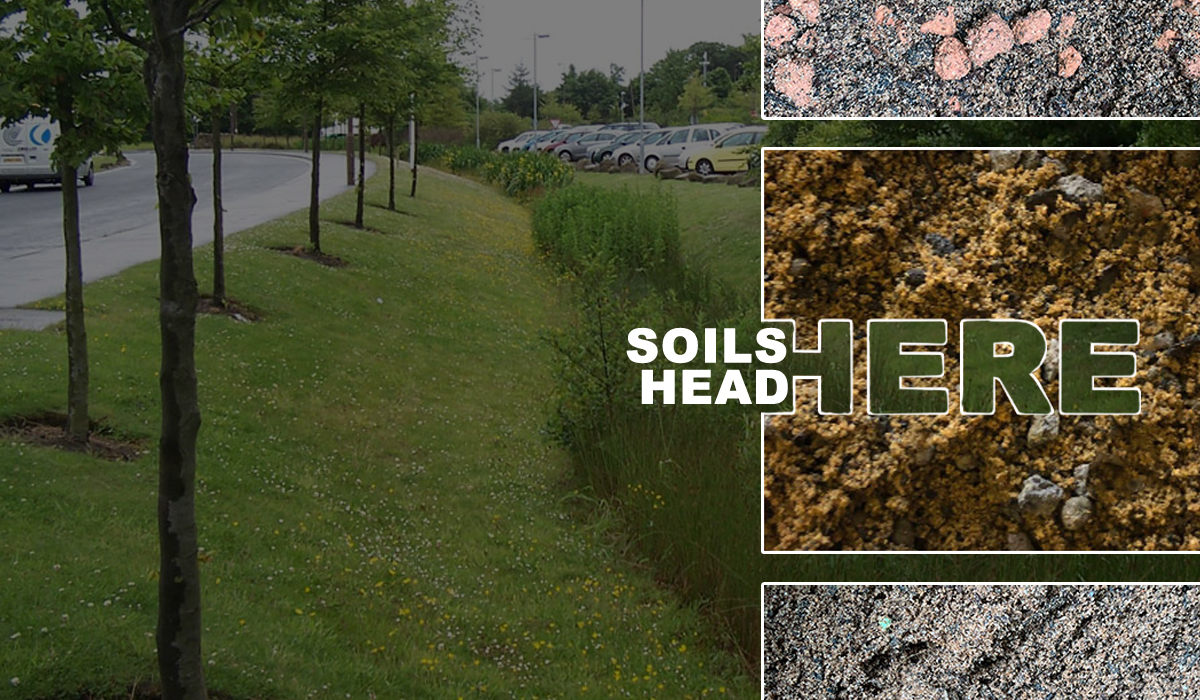
It has become imperative to balance development with environmental responsibility. As such, recent years have witnessed a rise in innovative solutions, with Sustainable Urban Drainage Systems (SuDS) and SuDS soils standing out as key elements. Jason Lock, business development manager at Boughton, explains.
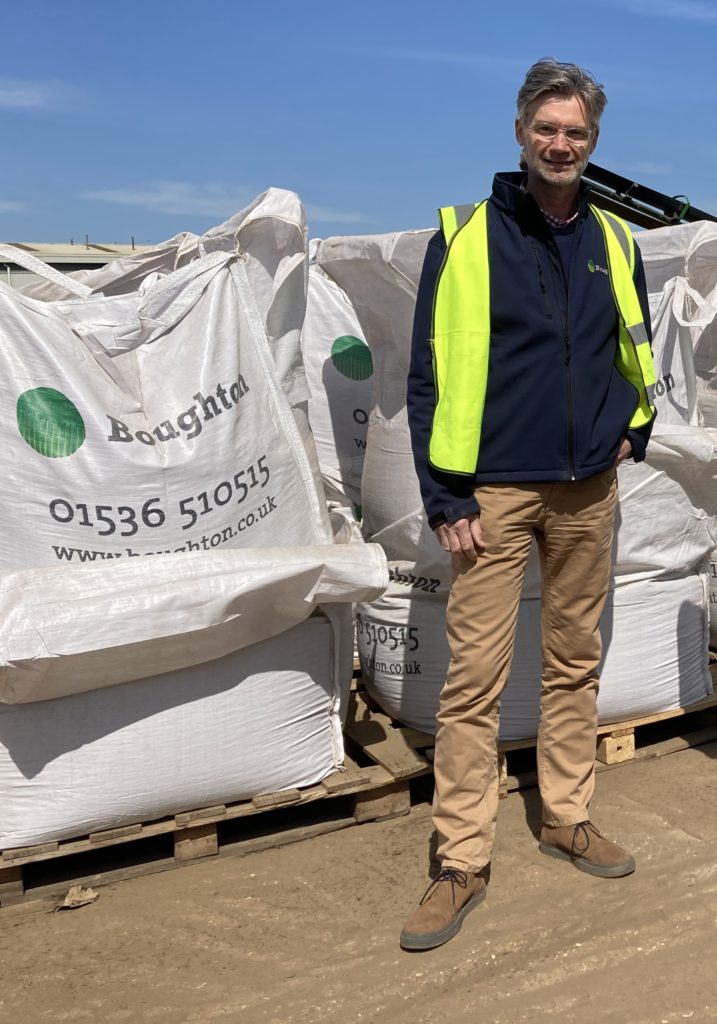
SuDS, as a concept, have already transformed traditional drainage systems by placing the emphasis on ‘green’ and natural approaches to managing surface water runoff. SuDS soils are a crucial component of these new drainage systems, serving as a natural filter and water management system. Unlike conventional impermeable surfaces, SuDS soils allow water to infiltrate, reducing the risk of flooding and pollution. As a result, these soils are playing a pivotal role in promoting sustainable development and enhancing the resilience of urban areas to climate change.
Composition of SuDS soils
SuDS soils are engineered to facilitate water infiltration and improve water quality. Typically, they consist of a mix of carefully selected materials that collectively create a permeable and effective medium for managing stormwater. The composition may include a blend of sand, gravel, organic matter, and engineered soil mixes. The specific ratio varies, based on the site’s characteristics and the desired performance of the SuDS.
How SuDS soils Work
- Infiltration: SuDS soils excel at promoting water infiltration. They allow rainwater to percolate through the soil, reducing surface runoff and preventing the overwhelming of traditional drainage systems during heavy rainfall.
- Filtering: SuDS soils act as natural filters, trapping pollutants and sediments present in stormwater runoff. This filtration process enhances water quality, benefiting both the environment and local ecosystems.
- Retention and delay: By holding and slowly releasing water, SuDS soils help regulate the flow of stormwater. This controlled release minimises the risk of flooding downstream, making SuDS an ideal solution for managing peak flows in urban environments.
- Biodiversity: SuDS soils contribute to the creation of green spaces within urban developments. These areas not only support biodiversity but also provide aesthetic and recreational benefits, fostering a healthier and more enjoyable living environment.
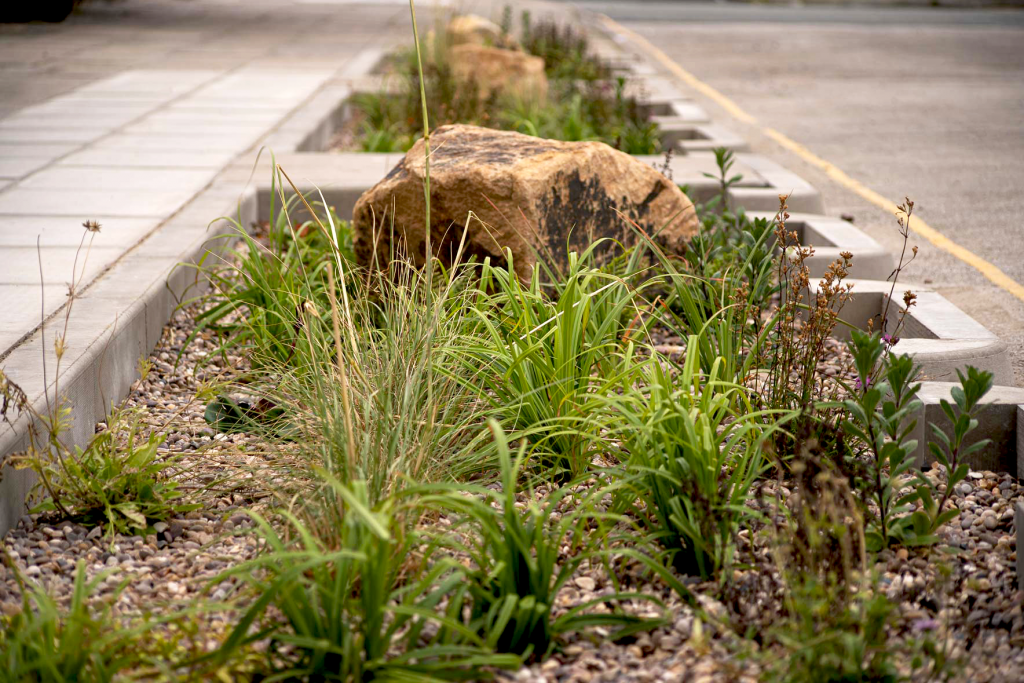 Why SuDS soils should be a top choice
Why SuDS soils should be a top choice
- Cost-effective: SuDS soils can be a cost-effective solution. They offer an alternative to traditional drainage systems, reducing the need for extensive underground infrastructure.
- Regulatory compliance: As environmental regulations become more stringent, integrating SuDS soils into construction projects ensures compliance with sustainability and stormwater management requirements.
- Enhanced value: Green and sustainable features, including SuDS soils, can enhance the appeal properties. Buyers are increasingly drawn to eco-friendly developments that emphasise environmental responsibility and are also encouraged by a scheme’s ostensible protection against flooding and excess runoff.
In the era of sustainable construction, SuDS soils emerge as a valuable tool for housebuilders seeking eco-friendly and cost-effective solutions. By embracing the principles of SuDS, developers can create resilient, environmentally-conscious communities that thrive in harmony with nature. As the demand for sustainable practices grows, SuDS soils stand at the forefront of a green revolution in urban development.
Want to know more?
More about Boughton’s SuDS soil portfolio

